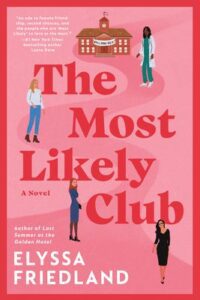Cradles of the Reich by Jennifer Coburn
ARC from Sourcebooks Landmark and Netgalley for an honest review
Book Blurb:
Cradles of the Reich by Jennifer Coburn: At Heim Hochland, a Nazi breeding home in Bavaria, three women’s fates are irrevocably intertwined. Gundi is a pregnant university student from Berlin. An Aryan beauty, she’s secretly a member of a resistance group. Hilde, only eighteen, is a true believer in the cause and is thrilled to carry a Nazi official’s child. And Irma, a 44-year-old nurse, is desperate to build a new life for herself after personal devastation. All three have everything to lose.
Based on untold historical events, this novel brings us intimately inside the Lebensborn Society maternity homes that actually existed in several countries during World War II, where thousands of “racially fit” babies were bred and taken from their mothers to be raised as part of the new Germany. But it proves that in a dark period of history, the connections women forge can carry us through, even driving us to heroism we didn’t know we had within us.
My Review: 4 stars
Cradles of the Reich by Jennifer Coburn takes the reader to a dark part of Nazi Germany at the Lebensborn Society maternity homes. I became familiar with these homes when I read Sara Young’s My Enemy’s Cradle many moons ago. Both books did a stellar job of bringing these homes to life, yet the circumstances are entirely different.
Coburn uses three characters’ experiences to show the how and why they came to be in a maternity home for Aryan bred children. Hilde wanted to be a high-ranking German wife, Gundi was sent there as the perfect German woman, but she hides a looming secret, and Irma is there as a nurse until she learns the awful truth about the home. I liked that the characters met one another but sometimes I was yearning for a first person POV.
Watching the newest season of The Handmaid’s Tale made think of the similarities between the sci-fi birthing rooms/homes and what happened in WW2 at these homes. When the high-level commanders came to the homes to hopefully impregnate some of the girls, I was sickened. It was painful to read at some points, but equally important because we can learn from these atrocities in order to stop them from happening again.
I think book clubs will have a lot to discuss while fleshing out the characters, their motives and how each character fared by the end.
Quotes I liked:
I don’t want to be in a world when helping one another survive is remarkable.”
“She wasn’t sure she believed in G-d anymore, but remembering Shabbat kept Gudi tethered to the Solomon family.”
“She tried on the words for size like a dress she admired in a shop window.”
“Biology made them Aryan, but family will make them German.”



















